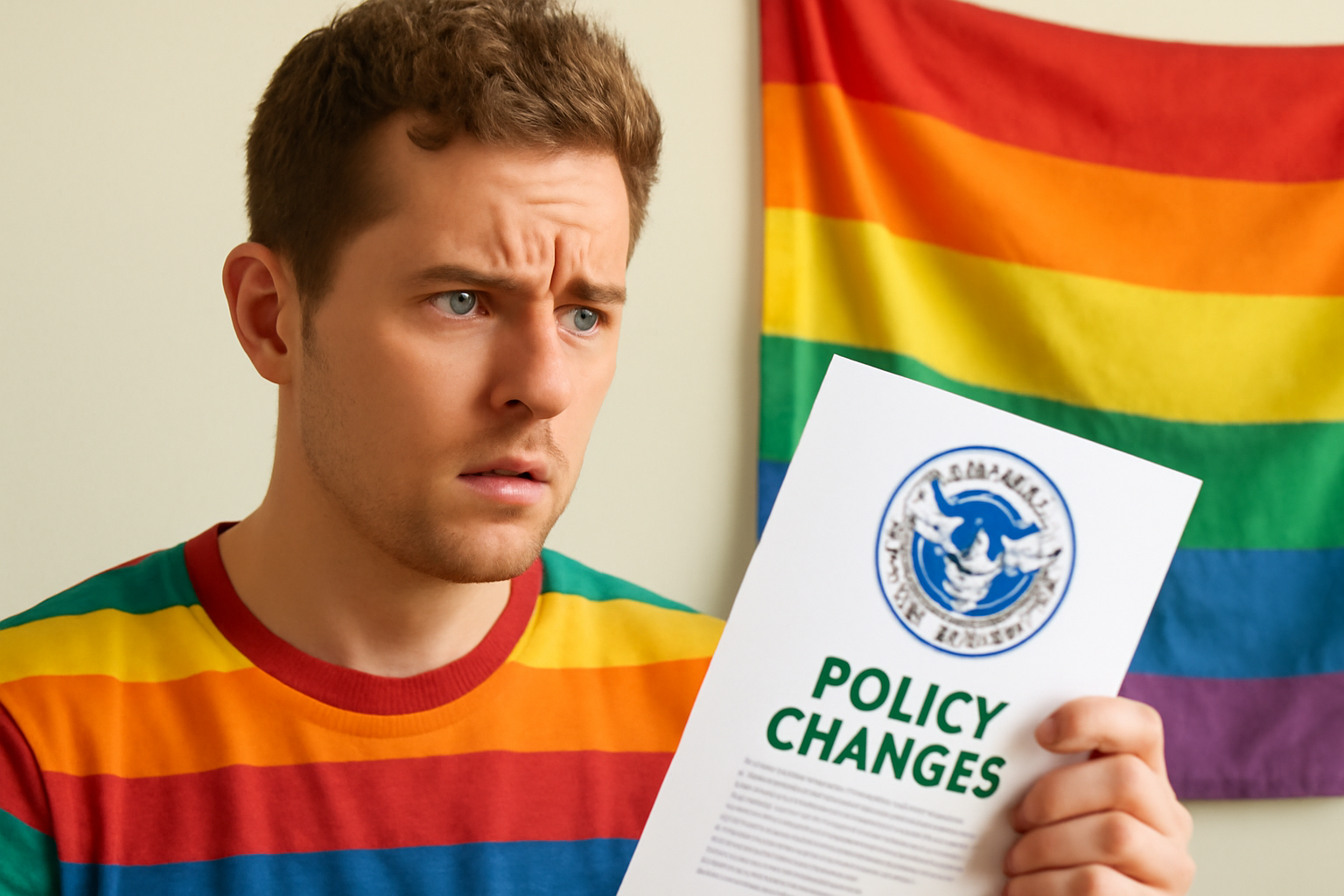
Introduction
In a significant policy shift, the Department of Homeland Security (DHS) has made changes that could impact the LGBTQ+ community in terms of surveillance and intelligence gathering. This development comes as a surprise to many, given the previous expansion of protections under the Biden administration. The removal of specific prohibitions against surveillance based solely on sexual orientation or gender identity has raised alarms among activists and community members alike.
Policy Changes Under Scrutiny
According to recent updates from DHS, internal documents have been revised to reflect a more restrictive stance on diversity and inclusion. This change aligns with executive orders made during President Donald Trump's administration, which sought to remove certain diversity, equity, and inclusion (DEI) policies from federal practice. The updated policy manual no longer includes "sexual orientation" and "gender identity" as protected categories, which were initially added under President Biden's directive. The implications of these changes extend beyond mere bureaucratic adjustments, posing potential risks to the privacy and civil liberties of LGBTQ+ individuals.
The revised language now states that DHS intelligence activities cannot be based solely on race, ethnicity, sex, religion, country of birth, nationality, or disability. However, these characteristics may be used in combination with other information if such actions are justified and narrowly focused to support national or departmental missions. The elimination of specific protections for sexual orientation and gender identity signals a possible shift in how intelligence activities may be conducted, potentially allowing for increased scrutiny of LGBTQ+ individuals and groups.
Historical Context and Concerns
The DHS's Office of Intelligence and Analysis has a history of controversial practices related to civil liberties. Organizations like the Brennan Center for Justice have criticized its past actions, which include monitoring activists and journalists and conducting interviews without adequate constitutional safeguards. These practices raise concerns about how the exclusion of LGBTQ+ protections might lead to further intrusions on privacy and civil rights.
Under the Trump administration, policies that facilitated the inclusion of sexual orientation and gender identity in the intelligence agency's prohibited list were overturned. This reversal was enacted on Trump's first day in office, reversing progress made by President Biden, who had introduced these protections as a commitment to combating discrimination based on gender identity or sexual orientation.
Community Response and Potential Impacts
The announcement of these policy changes has sparked discussion and concern across LGBTQ+ communities and advocacy groups. The potential for increased surveillance might deter individuals from participating in community activities or speaking openly about LGBTQ+ issues. Activists argue that such measures could stifle free expression and further marginalize already vulnerable populations.
LGBTQ+ advocacy groups are urging community members to stay informed and engaged, emphasizing the importance of solidarity and visibility in the face of potential government overreach. They also call for continued vigilance in protecting civil liberties and ensuring that changes in policy do not disproportionately harm marginalized groups.
Conclusion
As the DHS moves forward with its revised policies, the ramifications for the LGBTQ+ community remain uncertain. However, the potential for increased surveillance and reduced protections underscores the need for ongoing advocacy and awareness. Stakeholders across the spectrum are encouraged to voice their concerns and work towards ensuring that the rights and privacy of all individuals are respected and protected. As these changes unfold, the LGBTQ+ community continues to advocate for equality and justice in the face of evolving challenges.
Stay informed by subscribing to our newsletter for the latest updates on how political developments impact the LGBTQ+ community.
Related Posts
Triumphant Trans Woman Wins Legal Battle and Inspires Others to Stand Up for Their Rights
Breaking new ground: a landmark victory in transgender rights After battling in courtrooms and enduring endless challenges, Diana Portillo, a transgender woman, has secured a monumental victory in her decade-long fight against workplace discrimination. The result? Nearly $1 million awarded in a historic settlement. But this isn't just a win on paper—it represents a powerful precedent in combati [...]
Pride Month in Latin America: Protests and Demands for Equality
**Celebrating Pride and advocating LGBTQ+ rights in Latin America** Pride Month in Latin America was a lively mix where celebration met activism. Communities united, not just throwing a party but making a stand—demanding equality and pushing governments toward better protection and rights recognition. Throughout Latin America, pride events erupted in marches and cultural displays, each with a c [...]
Transgender Erasure Actions Implemented by National Park Service
```html Trump administration's impact on national park service and transgender recognition The Trump administration made notable moves in undermining transgender representation, which included directing agencies like National Park Service not include "T" and "Q" when they refered “LGBTQ” in any official communication. This move seems part a broader plan by this administration aimed at reducin [...]